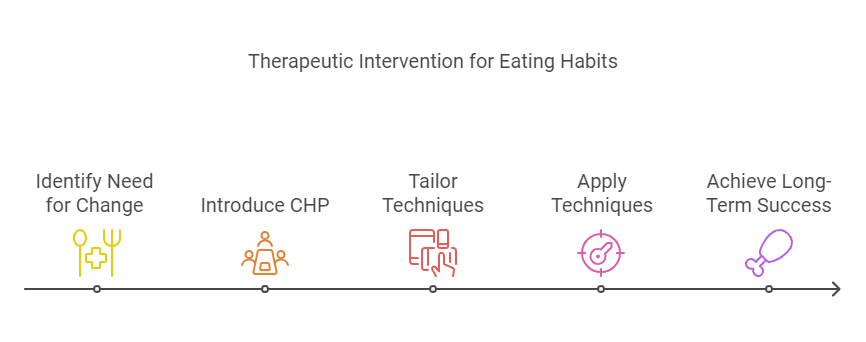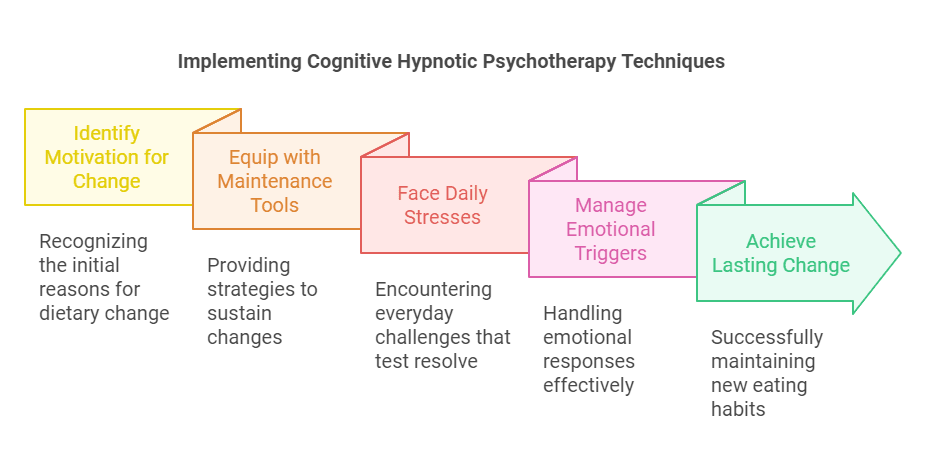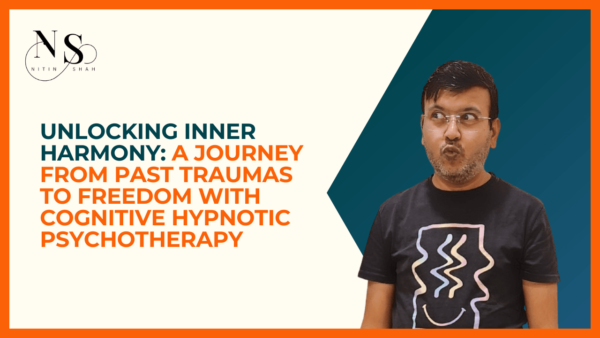Therapeutic Approaches for Changing Eating Habits
Long-term success in modifying eating habits often requires more than diet plans and willpower — it demands a therapeutic intervention that focuses on the psychological aspects of eating. Cognitive Hypnotic Psychotherapy (CHP) bridges this gap, utilizing a range of techniques tailored to the individual’s unique experiences and challenges.

Cognitive Hypnotic Psychotherapy Techniques
Behavioral Experiments:
Behavioral experiments in CHP challenge existing beliefs about food and self-efficacy. By actively testing these beliefs through controlled dietary changes or exposure to fear-inducing foods, clients can directly observe and learn from their experiences, leading to a shift in their eating habits.
Resource State Access:
This technique enables individuals to access a mental state where they feel empowered and resourceful. When used correctly, it can help overcome moments of weakness or temptation, making it easier to stick to healthy food choices aligned with one’s long-term goals.
Cognitive Restructuring:
Cognitive restructuring is about identifying and changing dysfunctional thought patterns related to eating. By addressing and reshaping these thoughts, individuals can gain a more realistic perspective that supports healthy eating behaviors.
Hypnotic Suggestion:
Hypnosis can be a powerful tool in CHP, where guided suggestions can help change undesirable eating patterns at a subconscious level. These suggestions reinforce positive beliefs and behaviors that align with the individual’s dietary objectives.
Mindfulness and Self-Monitoring:
Building awareness through mindfulness practices and self-monitoring of food intake, emotions, and circumstances surrounding eating events is crucial in CHP. Increased awareness allows individuals to interrupt and change autopilot eating behaviors and choose more consciously.

Putting It Into Practice: Realizing Long-Term Success
Implementing these techniques as part of a comprehensive therapeutic approach to changing eating habits can create lasting results. CHP helps by not only addressing the initial motivation for change but by equipping individuals with the tools to maintain these changes in the face of daily stresses and emotional triggers.

Conclusion: A Holistic Path to Lasting Change
It’s essential to understand that changing eating habits is a journey that involves the mind as much as the body. Therapeutic approaches like Cognitive Hypnotic Psychotherapy offer a holistic path to not just temporary modification but enduring transformation. With the right therapeutic support, long-term success is not just possible; it’s within reach.




